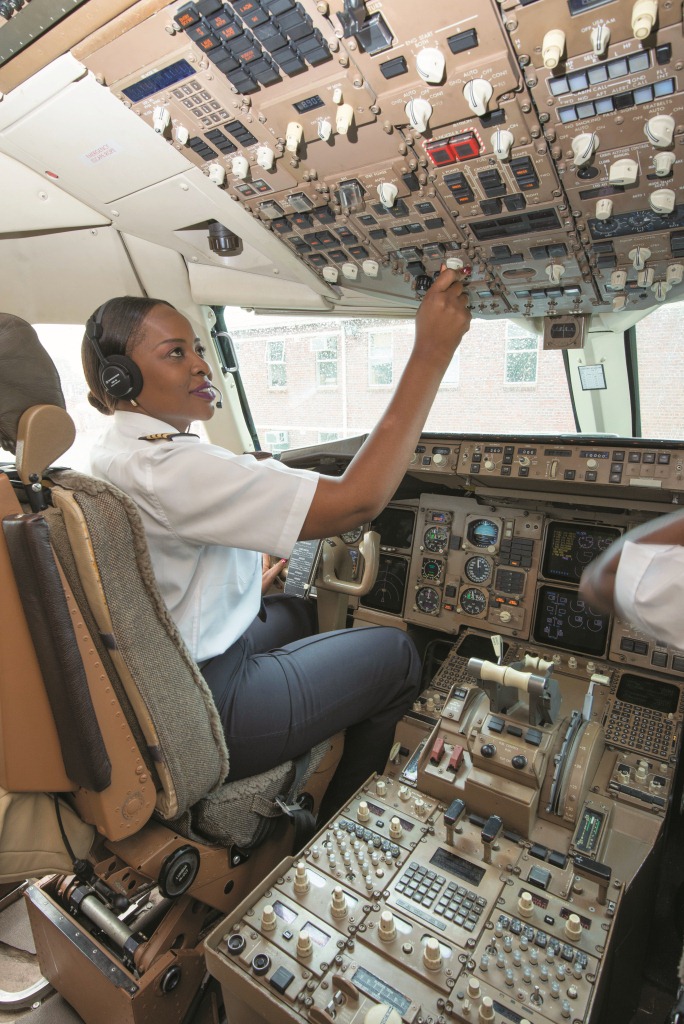If girls were meant to fly, God would have painted the skies pink.”
These were the first words Chipo Matimba heard from a male colleague when she reached for the skies 22 years ago.
How the first female Airforce of Zimbabwe pilot soared 30,000 feet above her humble home in Harare’s Belvedere suburbs is one of the great stories of Africa.
“I saw an advert in a local newspaper advertising for cadet programs for the air force in Zimbabwe, when I realized there were no gender restrictions, I decided to apply. My mind was clear growing up that I wanted to do something that required science and having done science subjects at high school helped me enrol as a cadet pilot,” says Matimba.
Matimba was born a few years after Ian Smith, former Rhodesian prime minister, signed the Unilateral Declaration of Independence in 1965 – a move that thrust many black Rhodesians into the dark.
Loading...
“There are some professions that were out of reach for black Zimbabweans, let alone women. The promises of independence meant we could all pursue our dreams,” she says.
“My father died when I was 10, this left the burden of raising nine children to my mother who was a dressmaker. Other than looking after her children, she had the extended family to care for also.”

The fact that Matimba, the sixth of nine children, opted for the military was a mystery to her family.
“After that advert, I went to join the military at the air force department in Gweru. Of the hundreds who applied, I was one of 10 selected for the program; three females and seven males. It was not an easy exercise, both for the training itself, and pressure from family that said I would not make it in the military.
“My grandmother was adamant that I was not supposed to be in this profession but after some persuasion my mother agreed that I give it a try. [At the end of] the training, the two other females had fallen by the wayside but all the males completed.”
Matimba knew she had made the right choice.
“It costs about $50,000 to go through training lessons with 200 flying hours to fly commercial. Without air force training, I would not have flown any single day as mother would not have even managed to raise money for one lesson,” she says.
In 1996, two years after she joined the military, she received her flying credits and got a few scares along the way.
“In 2005, I was flying with a trainee cadet and our one-engine plane had an engine failure so we had to crashland just outside Gweru. We were lucky that there were no trees, but only anthills; our small aircraft was damaged but our lives were not.”
These days, Matimba, 43, is a captain with full honors and flies an Airbus A320 across the region and on each trip, is entrusted with 160 lives.
For Matimba, success has not robbed her of her culture. She has one desire late in life – to start a family.
“The moment you are three months pregnant, you have to take time off flying and focus on your pregnancy. This is done for health reasons both for the mother and child. Unlike male counterparts, women pilots and even flight attendants have to deal with challenges posed by nature,” she says.

She laughs that if she decided to stay single, her family would take her to charismatic preachers, who see celibacy as a demonic possession to be delivered from.
In the air, she is the boss.
“In most cases when passengers are told that they are flown by a female captain, they come to shake my hand and introduce their daughters to me. More than a pilot, I now see myself as an inspiration to most females and young males. I want them to look at me and say, ‘if she did it, why can I not do it’.”
She makes one last quip as we end our conversation, full of laughter and reflection.
“Every time I am flying, like what my former colleague once warned, I will be painting the sky pink.”
Loading...
